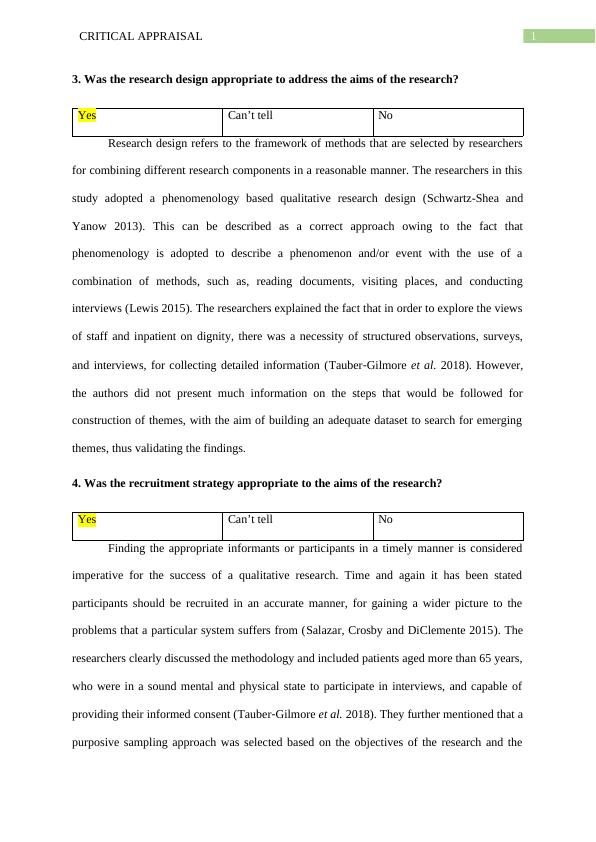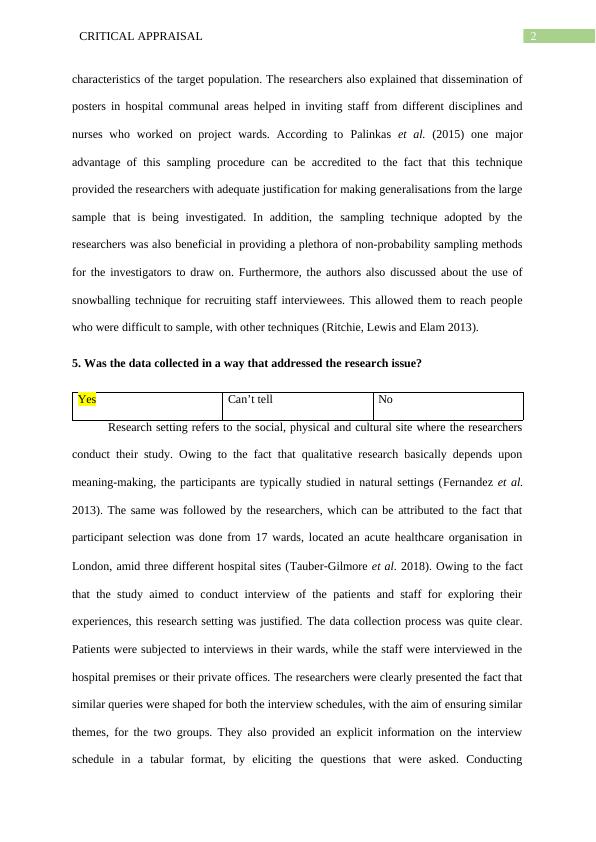Critical Appraisal of a Qualitative Research on Dignity in Acute Hospital Care
This article discusses the methods for synthesizing qualitative research in systematic reviews, specifically focusing on the use of thematic analysis. It highlights the importance of integrating findings from multiple studies to facilitate effective and appropriate healthcare.
Added on 2023-05-29
About This Document
This critical appraisal evaluates a qualitative research on the views of older people and health professionals about dignity in acute hospital care. The research design, recruitment strategy, data collection, data analysis, and findings are discussed in detail.
Critical Appraisal of a Qualitative Research on Dignity in Acute Hospital Care
This article discusses the methods for synthesizing qualitative research in systematic reviews, specifically focusing on the use of thematic analysis. It highlights the importance of integrating findings from multiple studies to facilitate effective and appropriate healthcare.
Added on 2023-05-29
End of preview
Want to access all the pages? Upload your documents or become a member.



